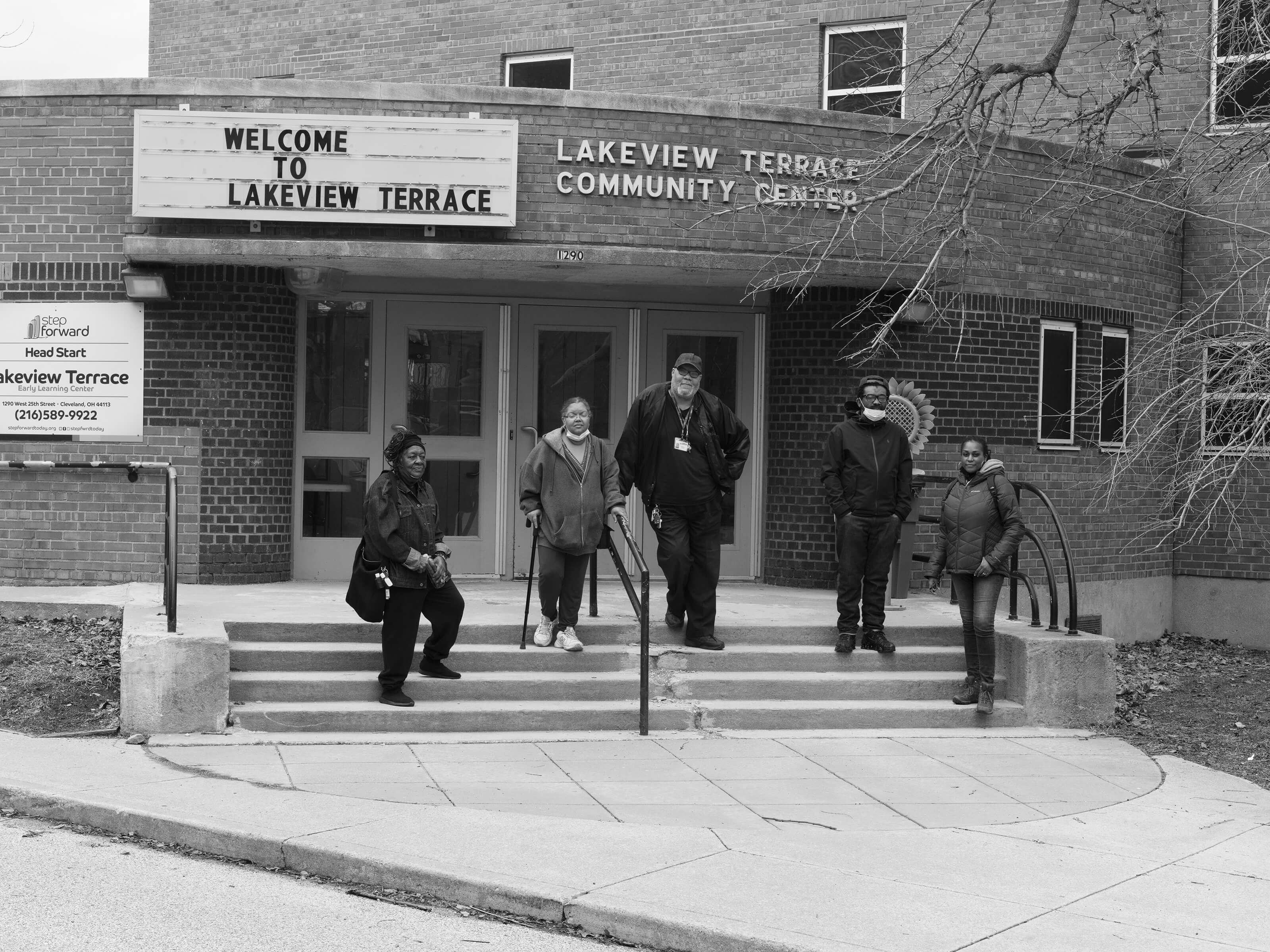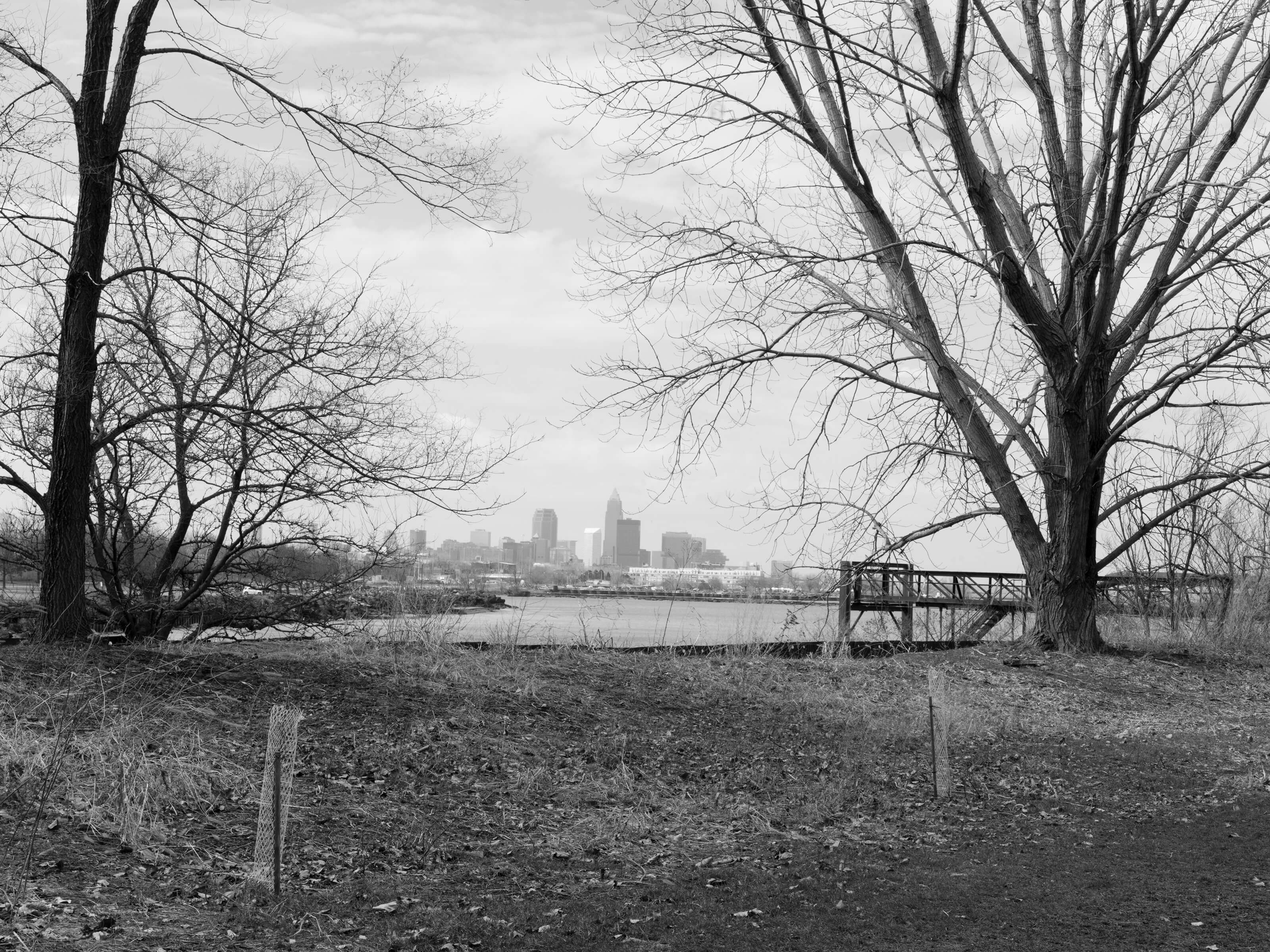We cannot achieve climate justice without racial justice.
In 2007, The George Gund Foundation started requiring all organizations seeking a grant from the Foundation to include a statement on their approaches and/or ideas for reducing greenhouse gas emissions. Fifteen years later, all grant requests still contain a statement on climate change and, according to many of our partners, the Gund Foundation has created a space whereby all organizations—regardless of their organizational mission or programmatic focus—are encouraged to think and act boldly on ways to address climate change. While no single person, corporation, or governmental entity can single-handedly resolve such complex issues as climate change, racism, sexism, or threats to democracy, it is our belief that everyone can make a contribution. In that spirit, the Foundation will continue to do our small part to support organizations and coalitions working cross sectionally and interdependently to address the myriad of challenges outlined in our What We Believe statement.
I assumed the role of president of the Foundation in January. Here, as well as in my previous time working in organized philanthropy, I have noticed several evolutions of practice in the broader funder community. The COVID-19 pandemic—along with the racial reckoning following the murders of George Floyd, Breonna Taylor, and Ahmaud Arbery—made many of us reevaluate our organizational values, beliefs, culture, behaviors, and work. Today, there appears to be less emphasis on notions of “mission drift” as organizations are approaching their work through a more holistic, multi-faceted, and justice-centered lens. For example, organizations such as Black Environmental Leaders (BEL) and Ohio Environmental Council (OEC) may be perceived—based solely upon their respective names—as traditional environmental organizations. However, BEL and OEC’s work is deeply entrenched in democracy building as they realize that climate justice and a thriving democracy are inextricably linked.
Earlier this year, I had the privilege to meet with Dannielle Bowman, recipient of the 2021–22 George Gund Foundation Photography Commission. While reviewing Dannielle’s portfolio, I was utterly inspired by the various nonprofit leaders, their connection to place, and the work they are doing to advance climate justice. From urban farming and community solar to inclusive environmental access and advocacy, we are witnessing a more racially diverse collective of environmental and climate leaders emerge in Cleveland (and beyond). In the past, BIPOC faces and voices were noticeably absent in mainstream conversations on environmental issues, even though BIPOC communities are disproportionately affected by climate change realities such as heat waves, droughts, massive flooding, rising sea levels, and land erosion. Indeed, there now seems to be an ideological shift and consensus among climate enthusiasts that:
- We cannot achieve climate justice without racial justice;
- In order to address climate issues, we must support democracy building efforts at all levels of government; and
- No form of justice can be realized without centering the voices and lived experiences and expertise of the people most impacted by an injustice or a series of injustices.
Since many socio-economic-political issues are interconnected, complex, and multi-dimensional, our responses must be equally multifaceted and comprised of coalitions that are multi-racial, multi-gender, and multi-issue based. We must also leverage various methods of communication, including non-traditional media sources, to help inform and advance our interests in preserving democracy.
In the past, BIPOC faces and voices were noticeably absent in mainstream conversations on environmental issues, even though BIPOC communities are disproportionately affected by climate change realities such as heat waves, droughts, massive flooding, rising sea levels, and land erosion.
The rapid growth in multimedia platforms certainly has its fair share of drawbacks, but it has also created agency and space for historically marginalized groups to reclaim their stories and shape their own narrative. Journalism is a core tenet of democracy, and no democracy can flourish without timely, transparent, and truthful information. Through more strategic investments in journalism, media, and narrative change, we can further obliterate historical misrepresentations of who people are and their capacity to contribute to the advancement of civil society. There is an abundance of untapped expertise in community, but—in order to unlock it—people in positions of influence and power must reexamine traditional notions of “expertise” and dare to explore fundamental questions such as:
Who determines expertise?
Who are the faces of expertise?
Where does expertise reside?
Are there varying degrees of expertise?
Expertise derives from the word “expert,” and an expert is characterized as a person who has a comprehensive and authoritative knowledge of or skill in a particular area.
How can we begin to solve for some of the most pressing issues in communities without valuing or utilizing the knowledge and skill of the people who navigate and survive those communities on a daily basis? How can we use narrative change and meaningful messaging to amplify lived experience expertise? We rely on surgeons to conduct surgeries. We entrust electricians to wire our homes. In that same vein—we should listen to and learn from the experts whose lives are most impacted by systemic racism, sexism, homophobia, patriarchy, and all other forms of oppression.
Lastly, we must not forget our civic duty to continually revisit the United States of America’s promise of life, liberty, and justice for all, and honestly ask ourselves: are we fulfilling it or betraying it?

Tony Richardson
President


